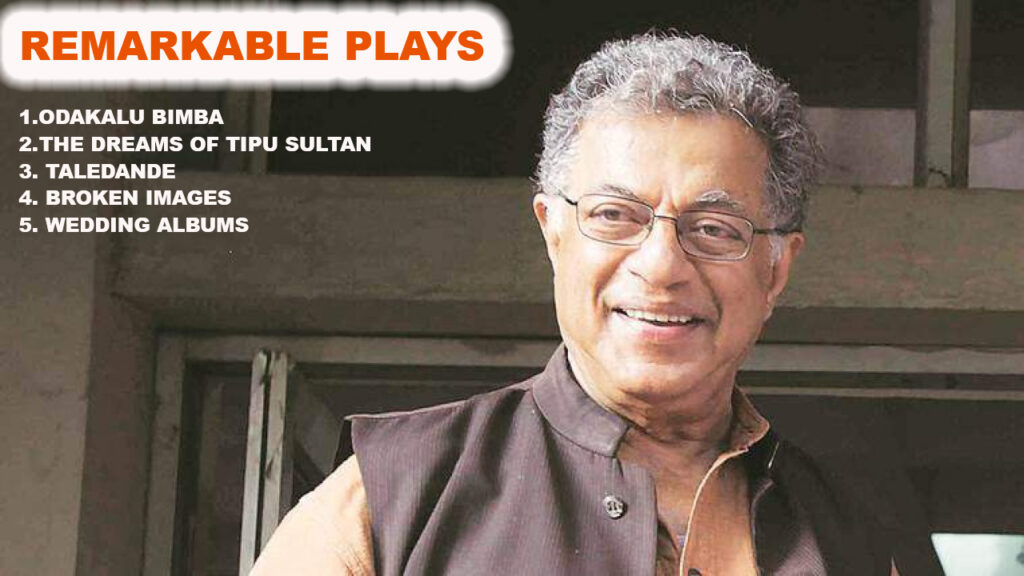He was a playwright, actor, and director. He is known to introduce history, mythology, and folklore in his theatre for almost four decades and tackling contemporary issues via theatre. He was born in Maharashtra on May 19, 1938, and was the recipient of the Jnanpith award which is the highest literary honor conferred in our country. Some of his remarkable plays are:
1) Odakalu Bimba
It is a Kannada monodrama written in 2005. This play was translated in Hindi and English was staged with the title of Bikhre Bomb and ‘A heap of broken images’ respectively.
In English, the play was directed by Alyque Padamsee and featured Shabana Azmi in the lead role.
2) The dreams of Tipu Sultan
it was written in 1997 and since then it has been performed by various theatre groups around the world. The actor has transverse the legendary historical moments and the final days of the prominent ruler of Mysore- Tipu Sultan in this play.
3) Taledanda
This was written in 1990 to explore the rise of radical protest and reform movements such as Lingaytism in the 12th century in Karnataka. Karnad received Karnataka Sahitya Academy Award in 1993 and the Sahitya Akademi Award in 1994 for this play in Kannada. He also received the Jnanpith award in 1998 for the same.
4) Broken Images
This play was written in 2005. It exposes a person’s psyche which is reduced to suppress bitterness over the period. it is the play that is relatable to the most common people in today’s contemporary world. It features how a lot of people have their closest relations nowadays with digital screens rather than with living human beings.
5) Wedding Album
This is a comedy play written in 2009 which speaks about the country in which we live today. The central characters of the play are drawn from the modern middle-class Indian family. Due to its connectivity with the masses, the play has been staged at numerous venues and has also been translated by Karnad himself from Kannada to English.

